
Mohinder Kaur aka Bobby
Bobby – Strength, Sensitivity and a Journey Across Generations
So far, I had never written a special blog for my third sister, Bobby, whose real name is Mohinder Kaur. She was just two years younger than Ambu, and the two of them grew up almost like twins. Yet, in temperament, they were completely different.
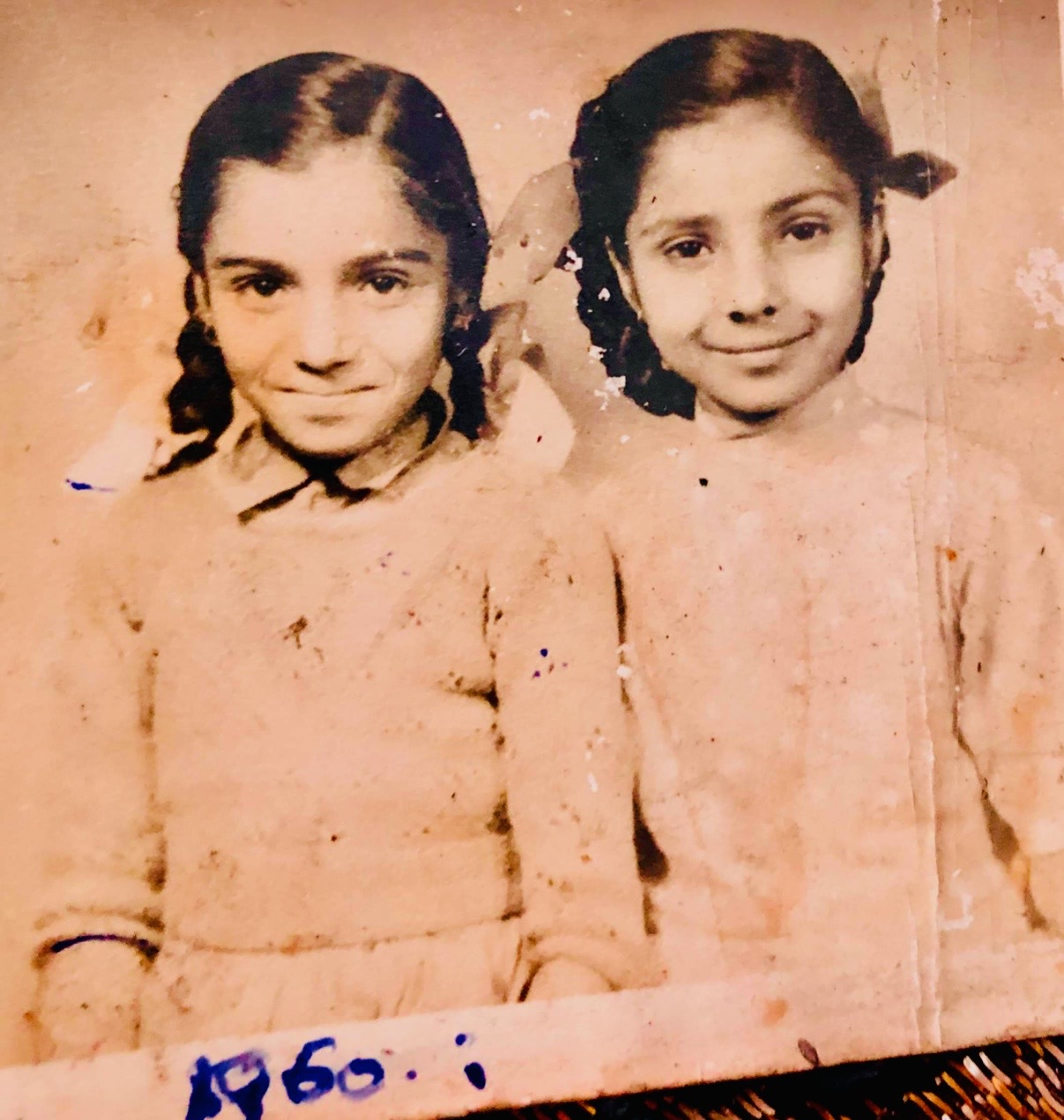
Ambu 10 and Bobi 8 on Diwali of 1960
Ambu was socially active, surrounded by many friends. Bobby believed in depth rather than numbers. She had very few friends, but permanent ones. She was serious, self-respecting, and would never allow anyone to make fun of her.
Her biggest childhood objection was simple:
“Do not call me Bobby.”
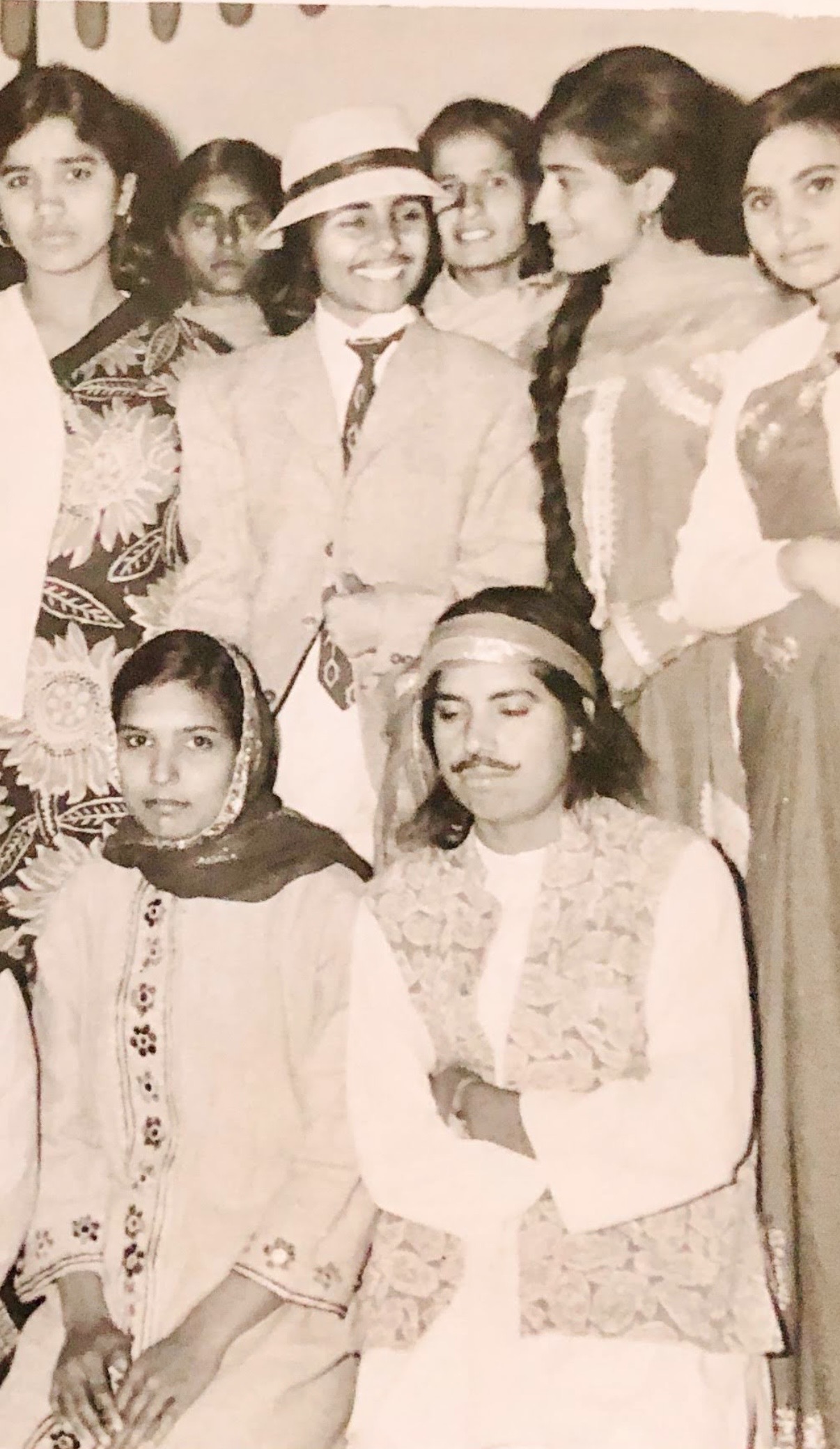
Bobby with her High School Drama Club friends
Ambu would mischievously enter her classroom and loudly call out, “Bobby!” What followed was nothing short of a Mahabharata at home. But then came the famous film Bobby, and suddenly the name became popular. Slowly, she began accepting it.
Temper, Determination, and a Soft Heart
Bobby reacted strongly when hurt. Once, ink spilled all over her frock and everyone laughed, she was furious. Another time, in anger, she cut her dupatta into pieces.
Yet she was deeply disciplined. If she started a task, she would finish it completely. Our mother lovingly called her:
“My best service provider.”
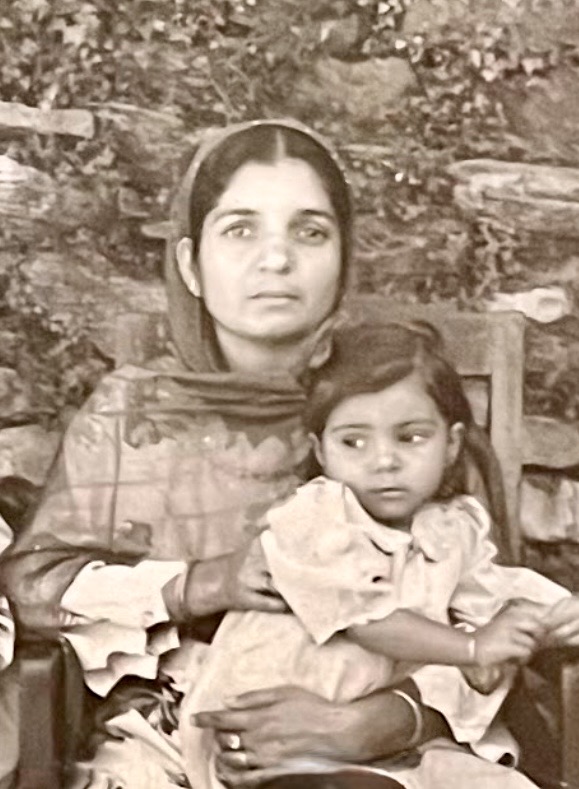
Bobi was the most favorite of all kids to Biji
She possessed deep empathy, genuine compassion, and a caring instinct that stayed her with her throughout her life. Biji always felt that she should join the healthcare field, believing that her naturally compassionate and sympathetic made her perfectly suited to serve and care for others.
A Mind for Mathematics and Design
In fact, Bobby was exceptionally good at mathematics. She had the analytical mind and precision that could have made her an excellent engineer. But in those days, girls were often guided toward traditional paths, and she too pursued Bachelor Teachers’ training as recommended by society and elders.
Yet her natural aptitude for numbers and structure always remained visible.
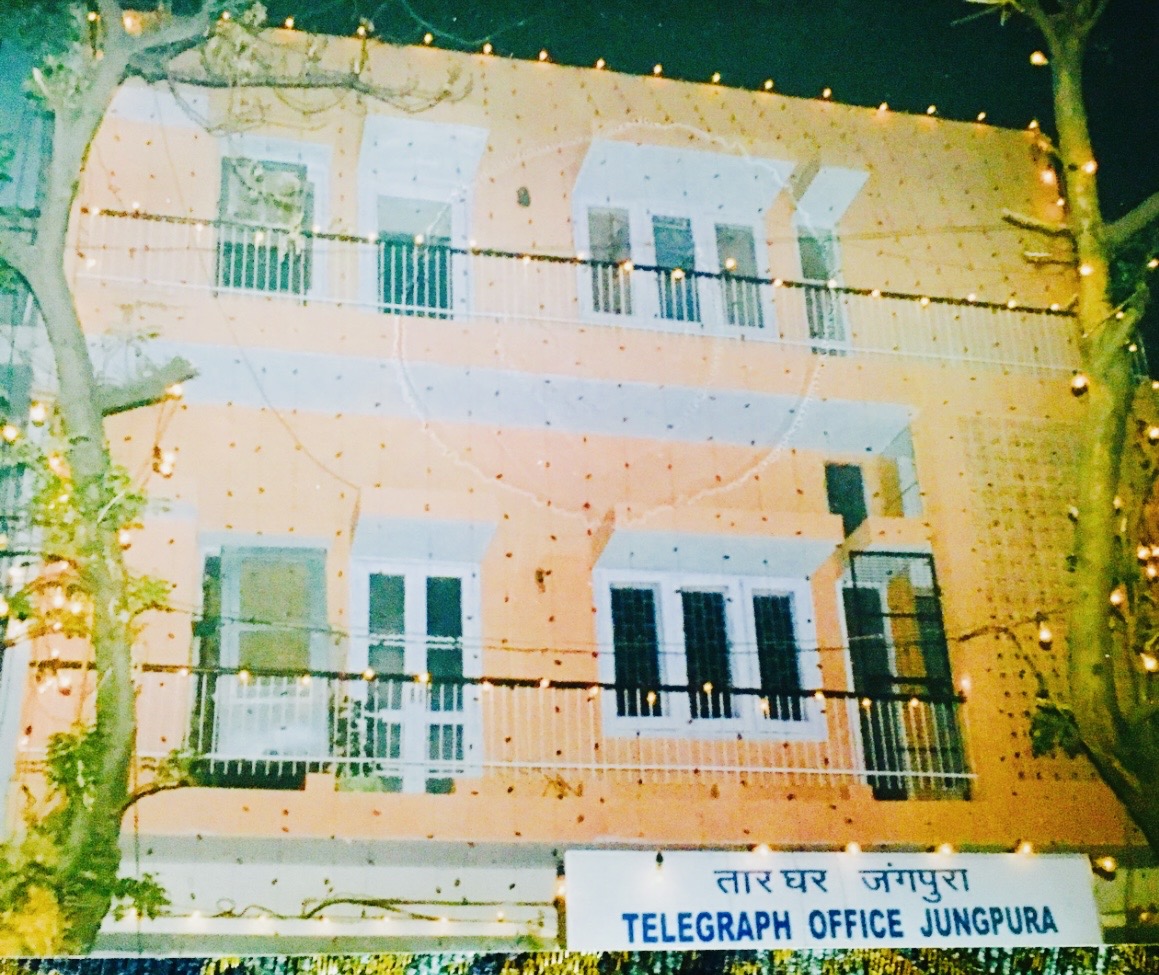
Old Jangpura Extension house, while I was away all day to my job, she worked hard to supervise the field construction very diligently.
When I undertook additions and construction work at our home in Jangpura, she took deep interest in the intricate details. She would carefully follow measurements, layouts, and design discussions. Many times, I genuinely felt she understood the structural nuances even better than I did. Her suggestions were practical, thoughtful, and often brilliant.

When the ground floor of her Defence Colony house was being constructed, Bobby personally supervised the work. She dealt firmly with the errant building contractor and did not allow any compromise on quality or commitments. With her sharp eye for detail and strong will, she ensured that the contractor adhered strictly to her terms and completed the work as per her standards
Later in life, this same ability helped her immensely when she built her own house in Defence Colony. Her clarity, planning skills, and attention to detail ensured everything was done methodically and beautifully.
It was then I realized, sometimes talent finds its own expression, even if life takes a different formal route.
Marriage and Simple Beginnings
In 1977, she married Dr. Didar Chaudhary, a veterinary doctor posted in rural Punjab. After postings in Tapa and Saina, he managed to stay in Barnala, then a tehsil about ten miles from our village Badbar in Distt Sangrur in those days.
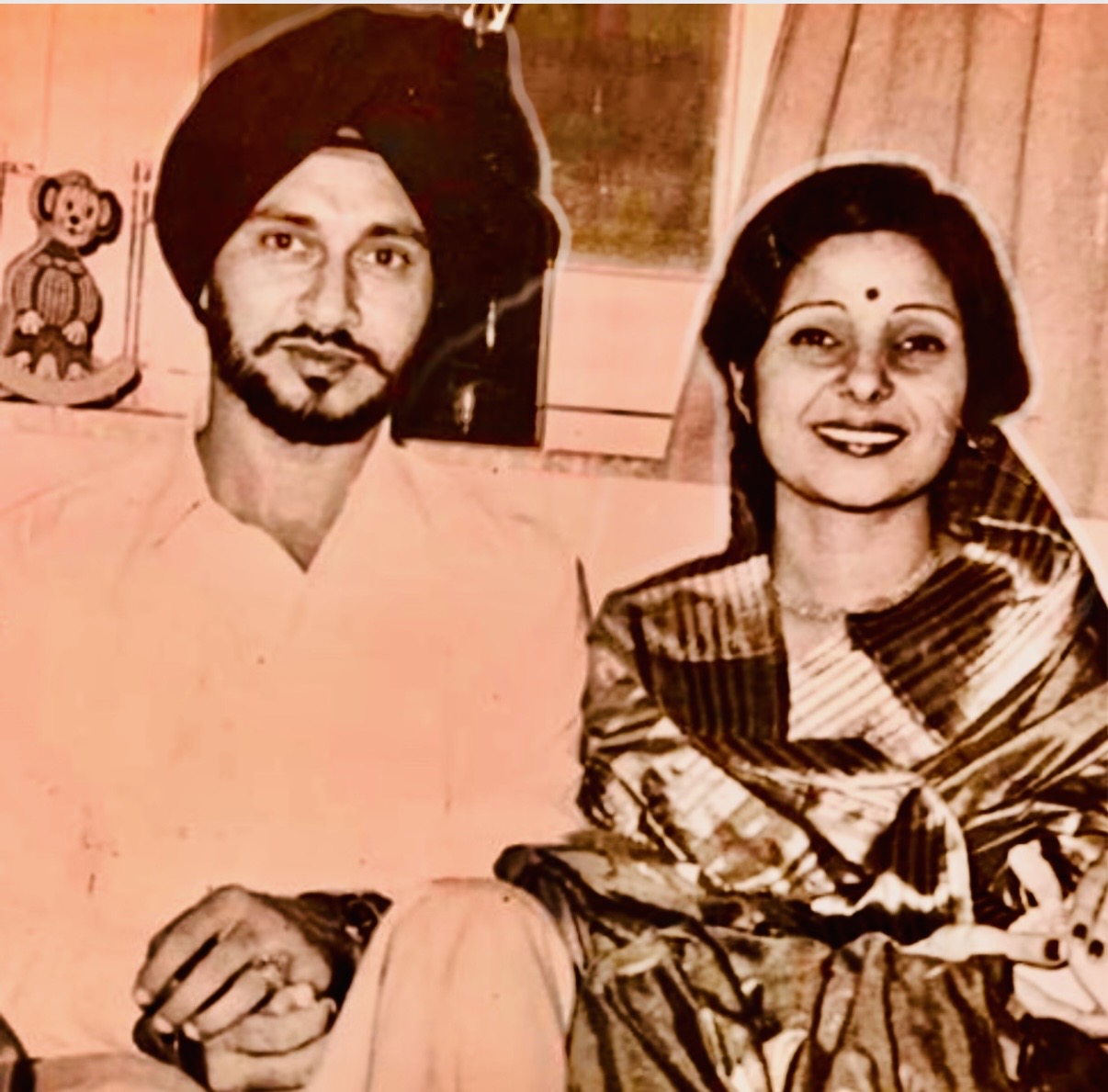
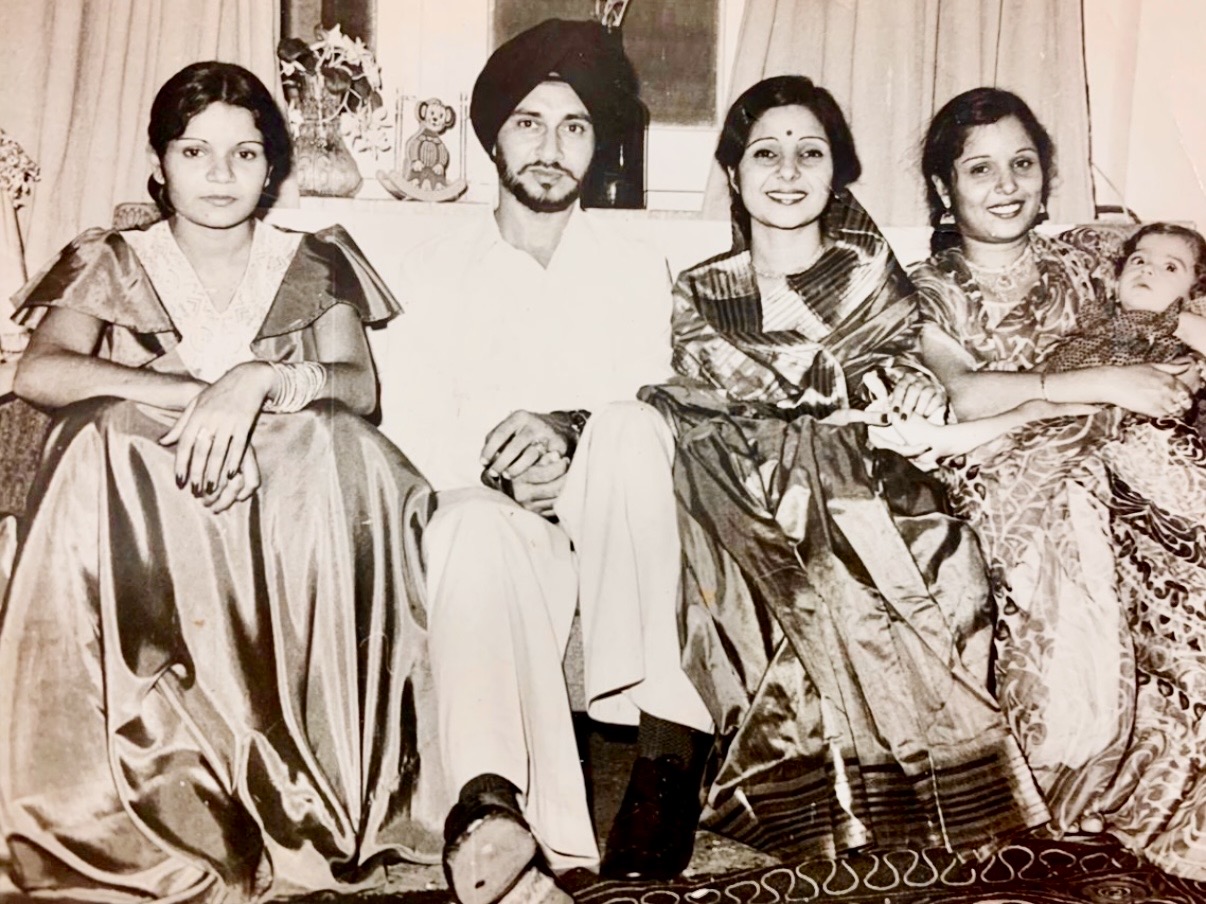
Newly weds Bobby and Dr Didar ji
They lived in a modest rented portion of a teacher’s house. Whenever I visited her there and saw the quiet rooms, my heart would pray silently.
I would do Ardaas:
“Waheguru ji, please bless her with a child. Let this home be filled with laughter.”
And Waheguru ji heard my Ardaas.
The Pleasant Surprise
The next time I reached Barnala and knocked at her door, she opened it with glowing eyes and a smile I will never forget.
She had just returned from the laboratory. The test results were in.
She was pregnant.
What a pleasant surprise that moment was! The joy in her eyes, the relief in her voice, it felt as if the entire house had already come alive.
The Journey to Delhi – A Blessed Birth

Clinic Hevetia owned by our friend couple Dr Sahunjas in Greater Kailash
For her first delivery, Bobby wanted proper medical care in Delhi rather than limited facilities in a small town Barnala.
Dr. Didar’s friend, Rev Santji from a village, arranged a brand-new car for their journey from Barnala to Delhi. Papaji accompanied them, and my father contributed ₹1,000 for petrol, a significant amount in those days.
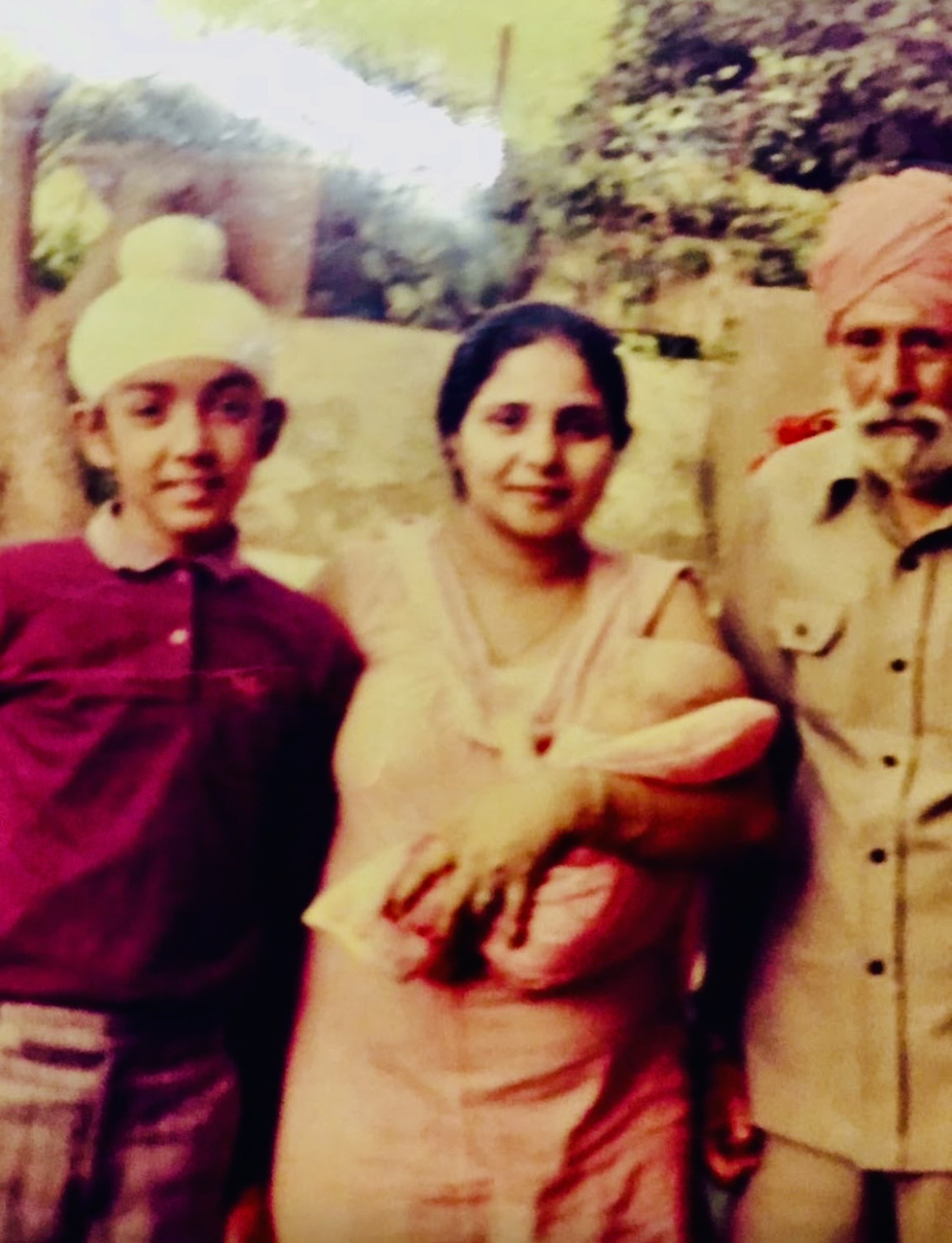
Newly born Mickey with Pspa ji and Shiv on either side
At Helvetia Clinic, in Greater Kailash, Delhi, a handsome and very fair child was born.
And thus, Mickey came into our lives.
Harry from Tipi and Mickey from Bobby, cousins growing together for more than forty years now.
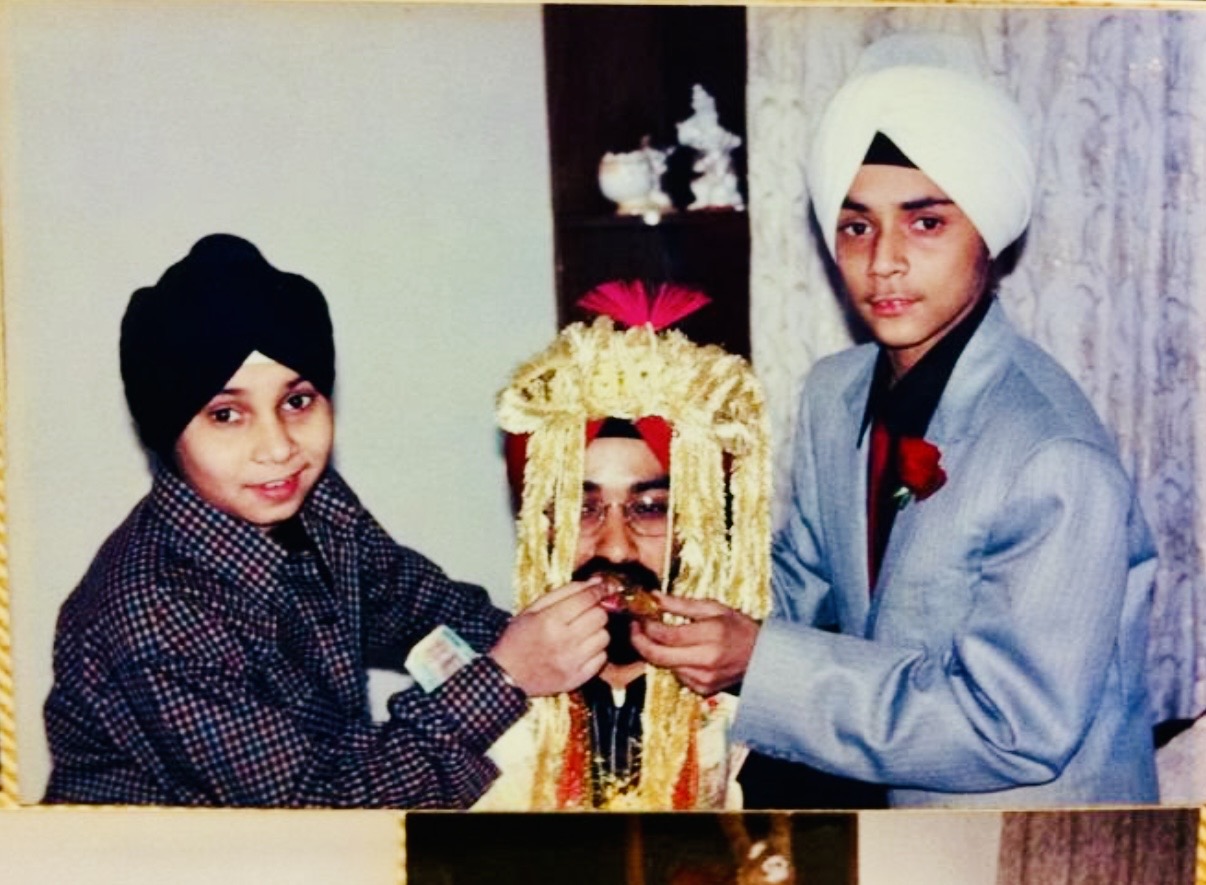
Mickey and Harry ceremonially feeding Dr Sunny on his wedding
Mickey – From Delhi to Pune to America via Punjab
Mickey grew into a bright and hardworking young man. After completing computer science, he pursued business management in Pune and later moved to the United States.

Salesforce Tower, the tallest building in the city of San Francisco
Today, he serves as Vice President at Salesforce. Through dedication and perseverance, he has built a successful life and even bought his own dream home in San Francisco Bay Area, only 40 miles from us..

Mickey and Akanksha arrived in San Francisco carrying dreams in their hearts, hopes of building a bright future and welcoming a baby into their lives.

Shilpy welcomed Akanksha with a Baby Shower party
His wife, Akanksha, is very supportive. Together they are building their family beautifully.
Little Jaivik – Full of Life

Shilpy holds him in her arms for the very first time, and the family waiting eagerly for the many more thrills and joyful moments he will bring into their lives.
Their son Jaivik is often called “naughty” by his parents and grandmother Bobby. But to me, he is simply active, curious, and full of energy. He wants to explore the world, and that spirit should never be suppressed.
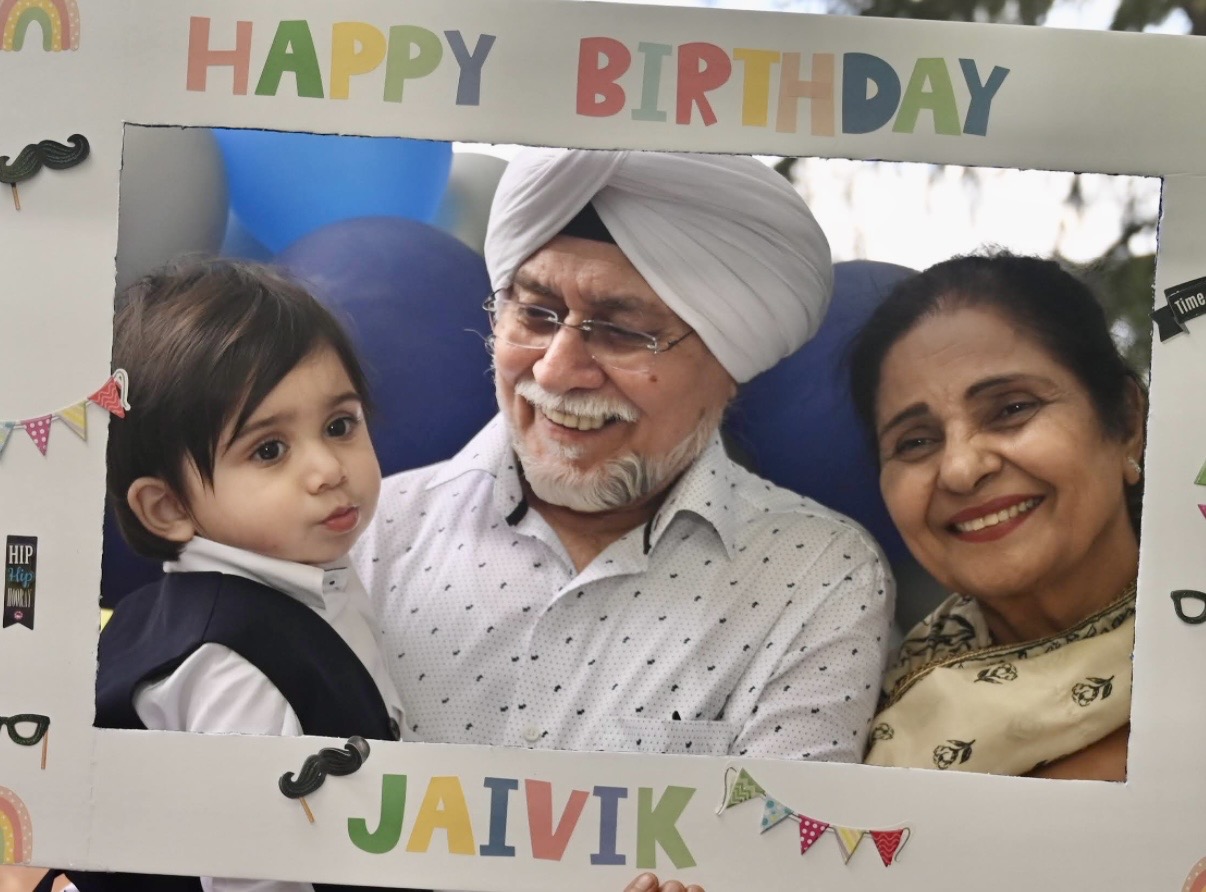
Jaivik with his grandparents on his first Birthday.
Jaivik is doing very well in preschool, growing confidently and keeps his parents and grandparents on their toes

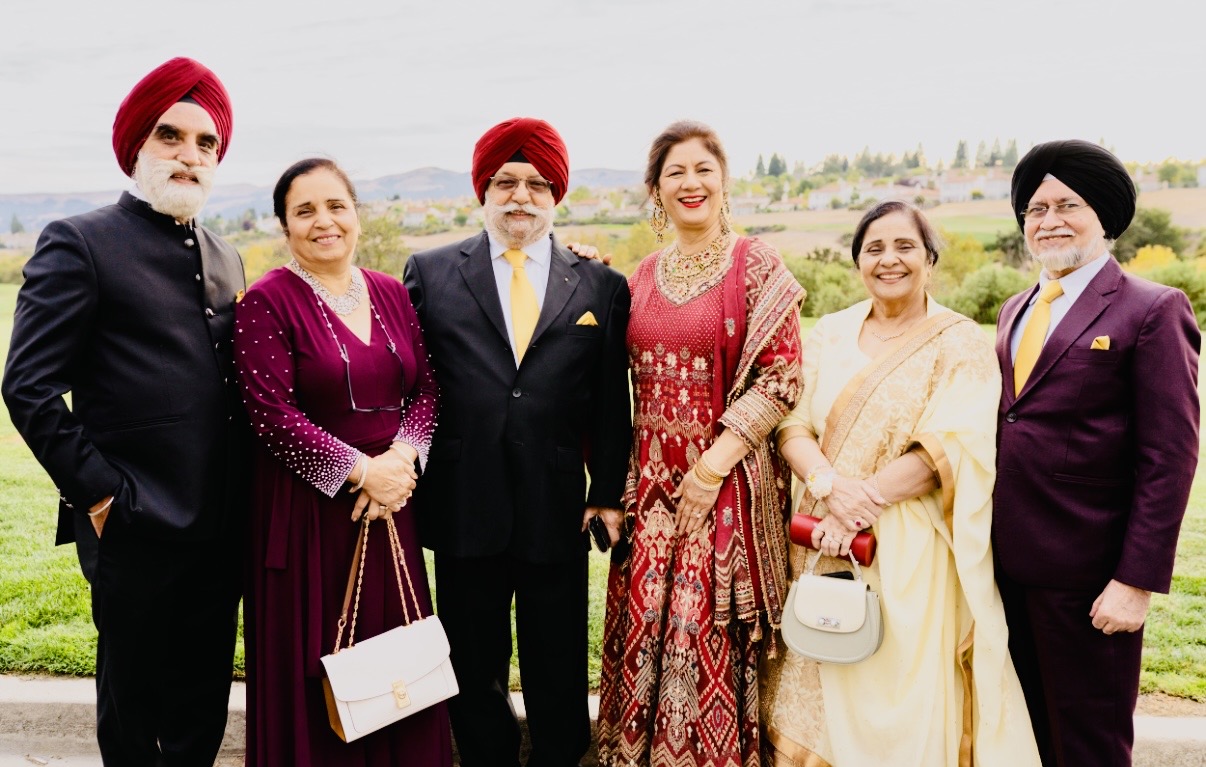
Historic pic on our Golden Jublee
Bobby and Dr Didar ji visit them almost every year. Inbetween Akanksha’s parents also come to help. It is heartwarming to see both sides supporting the young family.
A Brother’s Blessing
From a serious young girl who once resisted her nickname…
To a determined wife adjusting to rural postings…
To a joyful mother whose Ardaas was answered…
To a proud grandmother traveling across continents…
Bobby’s journey has been steady and dignified. I bless them all with health, unity, and prosperity.
May Mickey and Akanksha continue to grow together.
May little Jaivik shine brightly.
And may Bobby always remain what she has always been, strong in will, soft in heart, and blessed by Waheguru ji.